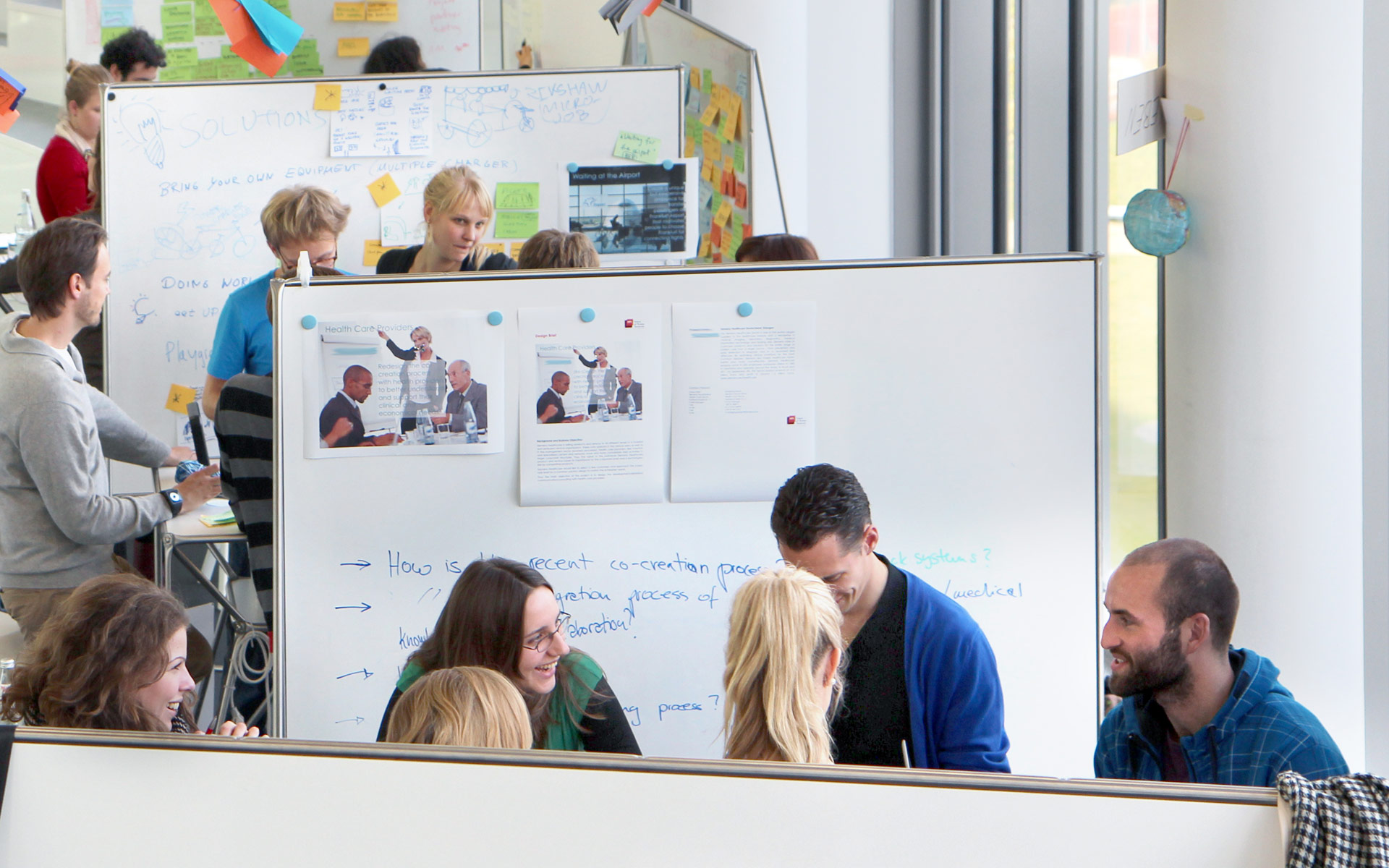PI: Dr. Claudia Nicolai, Prof. Ulrich Weinberg
Abstract
The overall objective of this research project is to identify, conceptualize, understand, operationalize and assess the impact of ‘spatial ingredients’ on design thinking and innovation activities of teams. It answers how to create a stimulating environment in organizations and how to create the conditions to boost the innovation and design management process. Our findings will allow companies to effectively use their workspace as a strategic tool and thus to sustainably build innovation capacities.
While previous years of the project focused on best practices, case studies and strategic intent, the emphasis in the upcoming year lies on realized intent, i. e., the development of a measurement tool as means to analyze and assess the impact of spatial settings and ‘spatial ingredients’ on innovation (team) performance.
Applying a Grounded Theory Approach, comprehensive framework of innovation spaces will be developed which lays the groundwork for the development of a measurement instrument allowing the analysis of the effects of innovation spaces on innovation (team) performance.
The overall research question for this project reads as follows: How do innovation spaces influence the innovation performance of teams?
The research question will be tackled by means of the following sub questions:
(1) How can innovation spaces be defined and measured (framework and measurement tool)?
(2) What are useful performance criteria for innovation spaces and the (innovation) performance of teams?
(3) How do innovation spaces impact these performance measures?
(4) Which factors have an influence on this relationship (moderators, mediators)?

